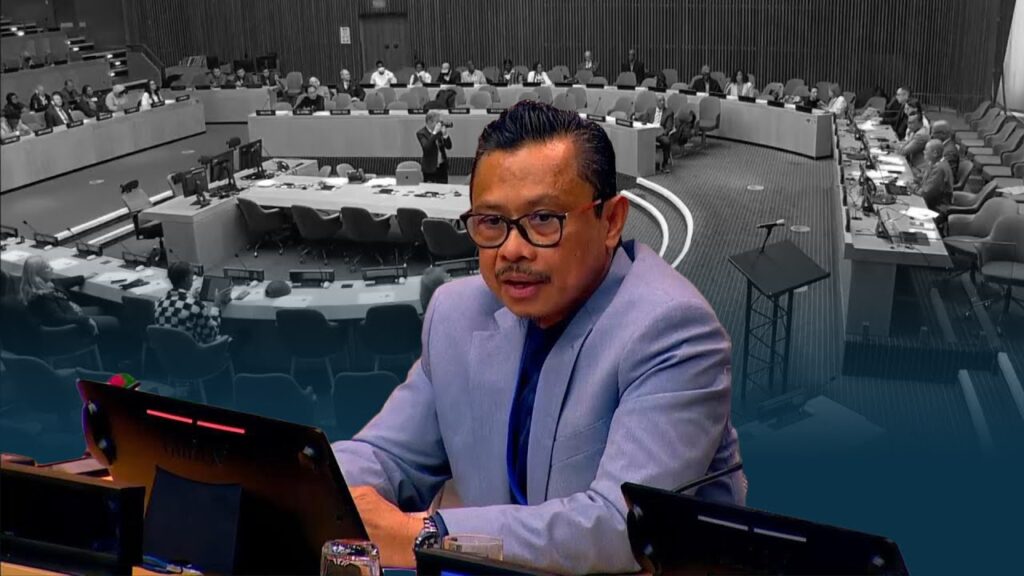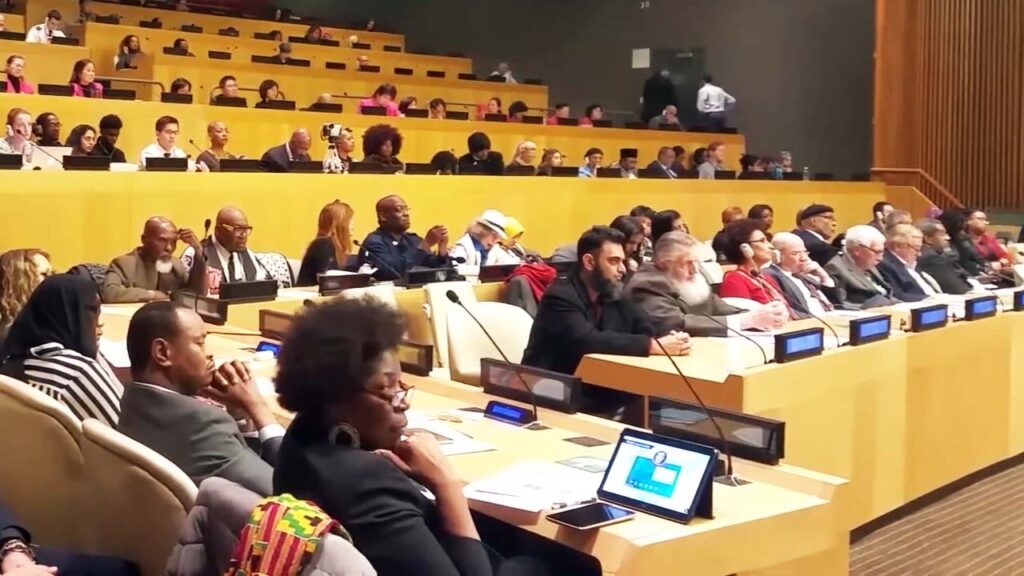In a bid to foster mutual understanding and harmony among people of diverse faiths, the United Nations General Assembly (UNGA) annually observes the World Interfaith Harmony Week (WIHW) during the first week of February.
Noting the interconnectedness of the quest for peace and harmony with the global health emergencies, such as the Ebola pandemic spreading across boundaries and with the 2030 UN agenda for Sustainable Development Goals, the theme for the 2016 WIHW was “Building Bridges across Boundaries.” To underscore the significance of the theme they invited Native American Spiritual leader, the ceremonial ritualist from the Mohawk Nation to participate with the other faith leaders. The spirituality that the Native American speaker imparted – through chants and dance- the need to protect ‘Mother Earth that nurtures and sustains us’ was warmly and widely embraced.
Leaders representing various religious traditions gathered at the United Nations for Interfaith Harmony Week, delivering speeches aimed at promoting peace and understanding among diverse communities. Imam Shamsi Ali, Sheikh Yusuf Estes, and Dr Ammar Saeed participated to share their perspectives on the importance of interfaith dialogue and cooperation.

In a gathering commemorating Interfaith Harmony Week at the United Nations, Imam Shamsi Ali delivered a stirring speech emphasizing the innate human capacity for love and harmony, and the imperative of preserving human rights for fostering peace and understanding.
Imam Shamsi Ali delivered an important speech during Interfaith Harmony Week at the United Nations (UN) in New York City.
In his speech, Imam Ali said that every human being is “born with the nature of love and harmony. That is our basic human nature.” He compared our nature with its opposite – hatred – which is a deviation from our loving and harmonious natural state gifted to us by our Creator.
Furthermore, Imam Shamsi Ali referenced Quranic verses to underscore the universal brotherhood of humanity, emphasizing the diversity among individuals as a blessing to be managed with understanding, respect, and compassion. “We must build partnerships and defend one another, for an attack on any of us is an attack on all,” he declared, advocating for the preservation of human rights and dignity as essential prerequisites for fostering lasting harmony. “Love and harmony can only flourish when every human right is protected,” he asserted, urging for a collective commitment to ensure the well-being of all.
Drawing from her own experiences as a Muslim woman, Prof Azza Karam reflected on the nuanced understanding of stewardship and divine interconnectedness within her religious tradition. She spoke passionately about the need to transcend traditional religious discourse and embrace indigenous perspectives, such as recognizing the divine. “The ability for me to say, ‘Yes, as a Muslim, we are called upon to be stewards of this Earth,’ is Muslim language. But then, for me, what that also means is that we are beholden to Nature in the same ways that we are beholden to God.” (Prof Azza Karam)
During the United Nations Interfaith Harmony Week, Dr Ammaar Saeed emphasized the importance of mutual respect and understanding among people of different faiths. “To build a world of peace and harmony, we must recognize and celebrate our shared humanity” (Dr Ammaar Saeed)

At the United Nations World Interfaith Harmony Week, Swami Sarvapriyananda, Spiritual Leader of the Vedanta Society of New York, discussed Vedanta’s ancient philosophy, emphasizing unity, the divinity of the soul, and religious harmony.
Swami Sarvapriyananda emphasized the significance of acknowledging and embracing the spiritual traditions of the world as a common heritage. He noted that Islam, Christianity, Judaism, Buddhism, Shintoism, Taoism, and Hinduism are all part of this shared legacy. “Our relationship to our faith is special, and yet it is through that special relationship that we have a wonderful relationship with all other faiths.” (Swami Sarvapriyananda)
At the United Nations Interfaith Harmony Week in New York, Sheikh Yusuf Estes, reflected on the importance of promoting understanding and tolerance among different religious communities. “We must strive to bridge the gaps between faiths and foster mutual respect,” he emphasized. “It’s through dialogue and empathy that we can build a world of harmony and peace.” (Yusuf Estes)
